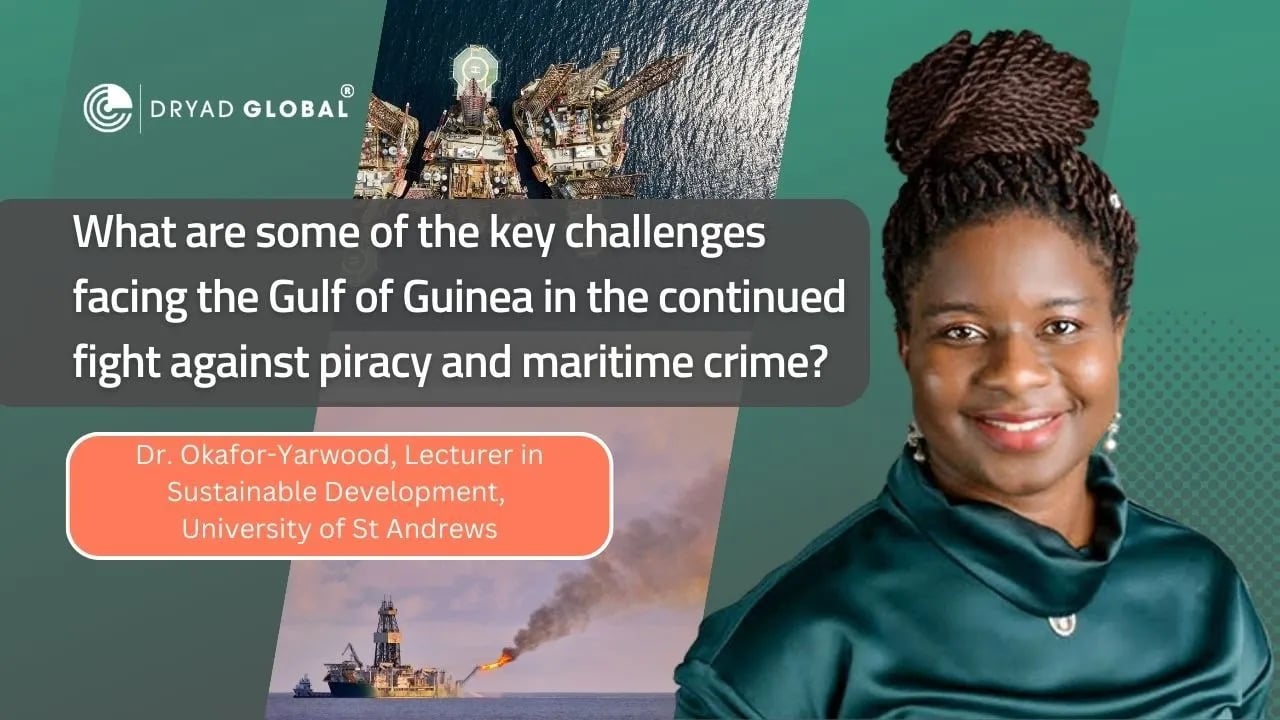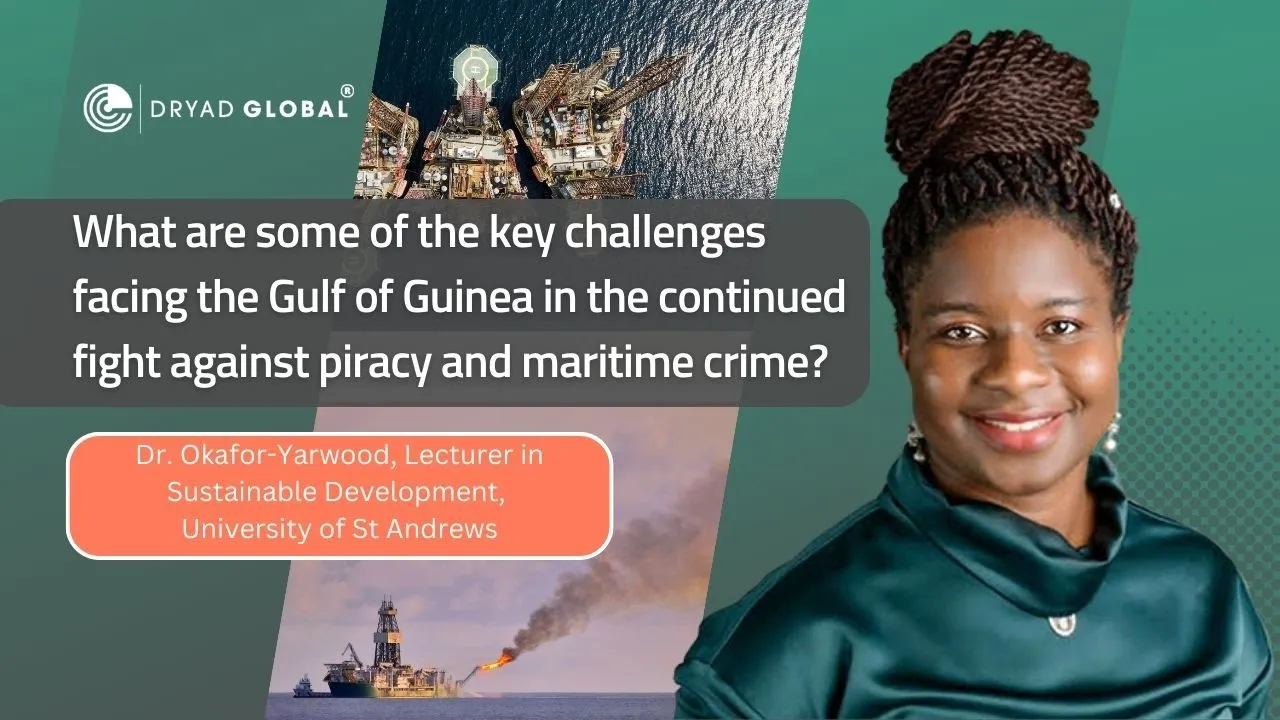Dryad Global's CEO Corey Ranslem talks to Dr. Okafor-Yarwood about the key challenges facing the Gulf of Guinea in the continued fight against piracy and maritime crime.
In 2022, incidents of piracy and maritime crime continued to decline in the waters of Nigeria and the wider Gulf of Guinea. Increased regional and international collaboration likely played a significant role in the drop off in incidents, as governments and organisations worked together to combat piracy. Joint naval patrols, intelligence sharing, and coordinated responses to piracy incidents improved maritime security. Governments in the region also increased their law enforcement presence, deploying more naval vessels and patrol boats to piracy-prone areas. Additionally, counter-piracy legislation and prosecution were strengthened, criminalizing piracy and establishing specialized courts.

Dryad Global spoke with Dr. Okafor-Yarwood who is a Lecturer in the School of Geography and Sustainable Development at the University of St Andrews. She is a specialist in maritime security and governance, with a particular focus on the Gulf of Guinea. Her research has explored a range of issues related to maritime security, including illegal, unreported and unregulated fishing, oil pollution, and climate change.
Interview with Dr. Okafor-Yarwood

What are some of the key challenges facing the Gulf of Guinea in the continued fight against piracy and maritime crime?
The biggest challenge at a regional level is limitation of assets and not being able to coordinate their use between those who have such assets, and those who do not. On an international level, regional events are affected by larger international ones - given the international nature of some maritime crime, particularly piracy. The lack of cooperation and collaboration between nations is an issue in terms of sharing information.
Over recent years, we’ve seen a reduction in maritime crime rates in the Gulf of Guinea. What’s the primary driver behind this?
This is something of a contradiction because, while we’re seeing a decrease in some maritime crimes thanks to increased collaboration and cooperation on regional, national and international levels, criminals are unfortunately moving elsewhere: for instance, when it comes to oil theft and drug trafficking, criminals are having more success as our repulsion efforts drive their creativity.
But we are now seeing increased collaboration and cooperation between nations on this front, on regional and international levels.
Speaking of international assistance with deployable regional assets - to what extent can the Deep Blue Project (integrated national security and waterways protection infrastructure) be an effective tool to reduce crime and piracy in the Gulf?
When NIMASA and other Nigerian maritime agencies are fully integrated, I think they’ll be able to do far more effective work than they are currently. We’re seeing evidence of the Nigerian navy’s ability to work effectively and actually lead as an example showing that the Gulf of Guinea countries are able to secure their waters when they have the right assets, information and support.
What role should the international community play in safeguarding the maritime interests of the Gulf of Guinea?
They have a very important role to play. Many times the international community has the information, assets and financial wherewithal - plus the technical knowledge - to do the right thing. However, the reality is that certain nations seem to be very selective in which issues they prioritise. On an international level, there needs to be more honest cooperation and collaboration in how projects are supported, how the support provided is actually what is needed - directed at specific individual challenges. They need to ask “How can we help?”
Solving a problem requires different perspectives and approaches to be considered. At the end of the day, nobody knows it all and trying to solve a problem only looking through a particular lens can be very problematic - especially when there’s no real understanding of the social realities on the ground.







